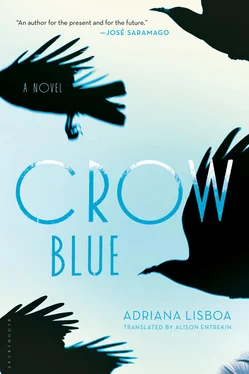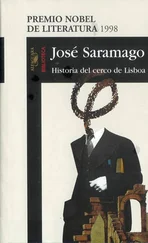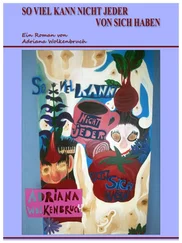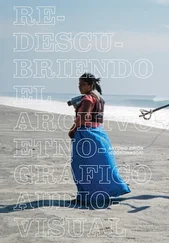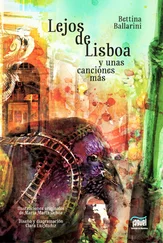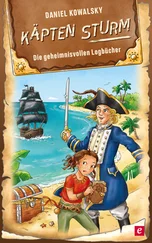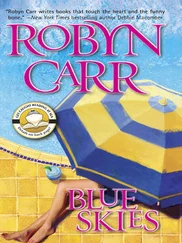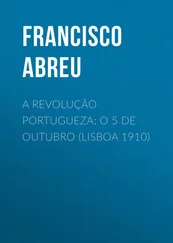Outside a white film had settled over all things: trees, cars, roofs, the street, sidewalks. Tiny, fuzzy, pallid objects were floating down from the sky, noiselessly and almost weightlessly. Some even rose again in the air, halfway down, as the faintest current of air flicked them up invisibly. Then they drifted down again. Then up again. Like children at a party. I crouched down, scooped up a handful of the whipped cream that had piled up at the front door and squeezed it. The cold hurt. The air cut my face; it entered my nostrils and lungs with tiny knives. Everything allowed itself to be covered by that substance that until then, for me, had only existed in films and books, an anti-tropical substance.
When the red Saab pulled up in front of the house a short time later, Carlos and I were outside, captivated by that climatic phenomenon that, historically, had so little to do with us.
My ears hurt and my cheeks hurt. My face was red and my nose was running. There was a first-time joy inside me, a kind of euphoric calm. I was the boy from the country who gazes at the ocean and wonders how it doesn’t overflow. I was the peasant who stares at a skyscraper and wonders how it doesn’t fall down. And Carlos looked at me, immensely happy at my happiness, and told me that it had been like that for him the first time too.
I think we’re going to have to buy those boots now, said Fernando as he passed. He smelled of chlorine. He grabbed a handful of snow and rubbed it on my head, and I protested without protesting.
That night I dreamed of the cold. It was a harsh cold, the cold of a world that scoffed at the naked bipeds who thought they were the boss of it. It was a whole, chaste cold. Without the convenience of heated homes. A cold without contours, without seasons and counter-seasons; just cold. I wasn’t part of the dream. Neither was Fernando, or Carlos, or his family, or my possible father, or my mother, or anyone. The cold didn’t need people to dream it up.
That morning a plateau of snow had appeared in front of the house. The snow conspires with the desert. Things lose their contours and the all-white sky sticks to the all-white roof, making worlds coincide, annulling distances. There is something of a unifying dream in it, like Esperanto. There were no longer any colors. Everything was the silent accumulation of the snowflakes that fell, tiny and incessant, as tenaciously as death takes over a body. But we were alive, and inside the house the comfort and warmth felt prodigal. Or insulting.
Fernando put his coffee mug on the table. He pulled on his boots, got a wide shovel and said I’m going outside to clear the white shit off the sidewalk.
I thought he’d apologize for saying shit, but he didn’t.
A few days in a row of insistent snow (and a snow storm on the Thursday that left everyone stranded in their houses, schools closed, Fernando unable to go to work) had turned bald slopes into runs that children plumped out in colorful jackets slid down on colorful sleds. That was when Fernando came home with the red plastic sled and, promising me that I wasn’t going to die, pushed me down the slope.
I opened my mouth on the way down and swallowed enough snow to perform a kind of self-baptism. From then on I was one of them. I was the same. I was just another girl in a light purple waterproof jacket, and black rubber boots lined with synthetic fur. And jeans stiff with cold to which snow bandages stuck. And mittens. And a stocking hat with two braids at the sides. The jacket and boots were from an outlet but they were good quality, although it felt strange to have all those textures between my skin and the world. I now existed in layers.
The air became hard again, but the essence of this hardness was different. At any rate, I needed to accept that there was rarely any middle ground in that place. And at any rate what mattered was that now I was one of them, yes: analogous, comparable to, like. In a prosaic fraternity of jacket-encased bodies sliding down smooth white slopes, amidst awe-inspiring spills and war cries. I too uttered cries, I too took spills, I too.
Carlos closed his eyes and I said open your eyes, Carlos, it’s no fun with your eyes closed, and in one of his spills he lost his glasses and we desperately hunted for a long time until we saw an arm sticking out of a mound of soft snow like a periscope.
The pine trees dotted around us reminded me of the plastic Christmas trees that my mother and I used to decorate with cotton in December. The sky was blue, but the sun was angled. It got into my eyes from underneath, almost, as if its rays were flexible. It bumped into the mountains at five o’clock. Airplanes left white tracks in the sky, and distant trails of sound, which arrived with a delay.
Fernando and I arranged the trip to New Mexico for the end of November, when I had a week off school for Thanksgiving.
I felt like a stage actress on opening night. I was backstage applying makeup, getting dressed, mentally going over my lines, warming up my voice, Peter Piper picked a peck of pickled peppers, a peck of pickled peppers Peter Piper picked, if Peter Piper picked a peck of pickled peppers, then where’s the peck of pickled peppers Peter Piper picked, as I had seen my mother’s friend’s actor friend do once backstage at the Glaucio Gill Theatre in Copacabana. (Moments later I saw him on the stage, transfigured: confident and handsome in the limelight. It had to be possible.)
The dog-eared maps of Colorado and New Mexico were reinforced with sticky tape. They left the drawer and migrated to the glove box of the Saab.
Fernando went to Carlos’s house personally to ask his parents for permission to take him with us, at my insistence (he’ll be so lonely, Fernando, a whole week with no school, and do you think his folks are going to take him out anywhere?).
Carlos’s eyes shone as if someone had switched them on. But his eternal concern led him to ask if he needed papeles to go to New Mexico, and if he did, what should he do.
His father’s moustache said, in tight-lipped Spanish, that Carlos shouldn’t go around saying things like that. People turned other people in (no, he wasn’t referring to us — of course not — we were friends — but Carlos had a loose tongue). And if that were to happen, if someone were to turn them in, they would have to leave. LEAVE. And worse, they’d have to leave Dolores behind, because now she was in Florida leading a different life. And they might never see Dolores again if they had to leave for some reason. Carlos’s mother started to sniffle and covered her face with her hands. Fernando cleared his throat and stared at the wall. Carlos was immediately gripped with panic, apologized and never uttered the word papeles again.
At that moment he grew a little more, confirming my theory that that was how things went, in bursts, in spasms, and not in arithmetic continuity. All of the metaphors for growth — the steps on a ladder, a road with curves here and there — were sheer nonsense. It all really happened in fits and starts, like when I was on the plane going to the United States and at some point they told us to fasten our seatbelts because we were going to hit some turbulence, and suddenly that aerial pachyderm which, according to Americans, had been invented by the Wright brothers started to shake in the middle of the sky. It shook as if there were potholed asphalt beneath it, like on certain stretches of the highway between Rio de Janeiro and Barra do Jucu.
In the blink of an eye, a cloud, a sister who leaves home with her boyfriend, a sentence someone says involving papeles and suddenly you are older. Depending on the turbulence, maybe it is possible to go to bed at the age of forty and wake up sixty.
My mother should have stayed married to you, I told Fernando the night before we left, as we were eating the pasta that I had prepared myself with a sauce with Paul Newman’s face on the label.
Читать дальше
